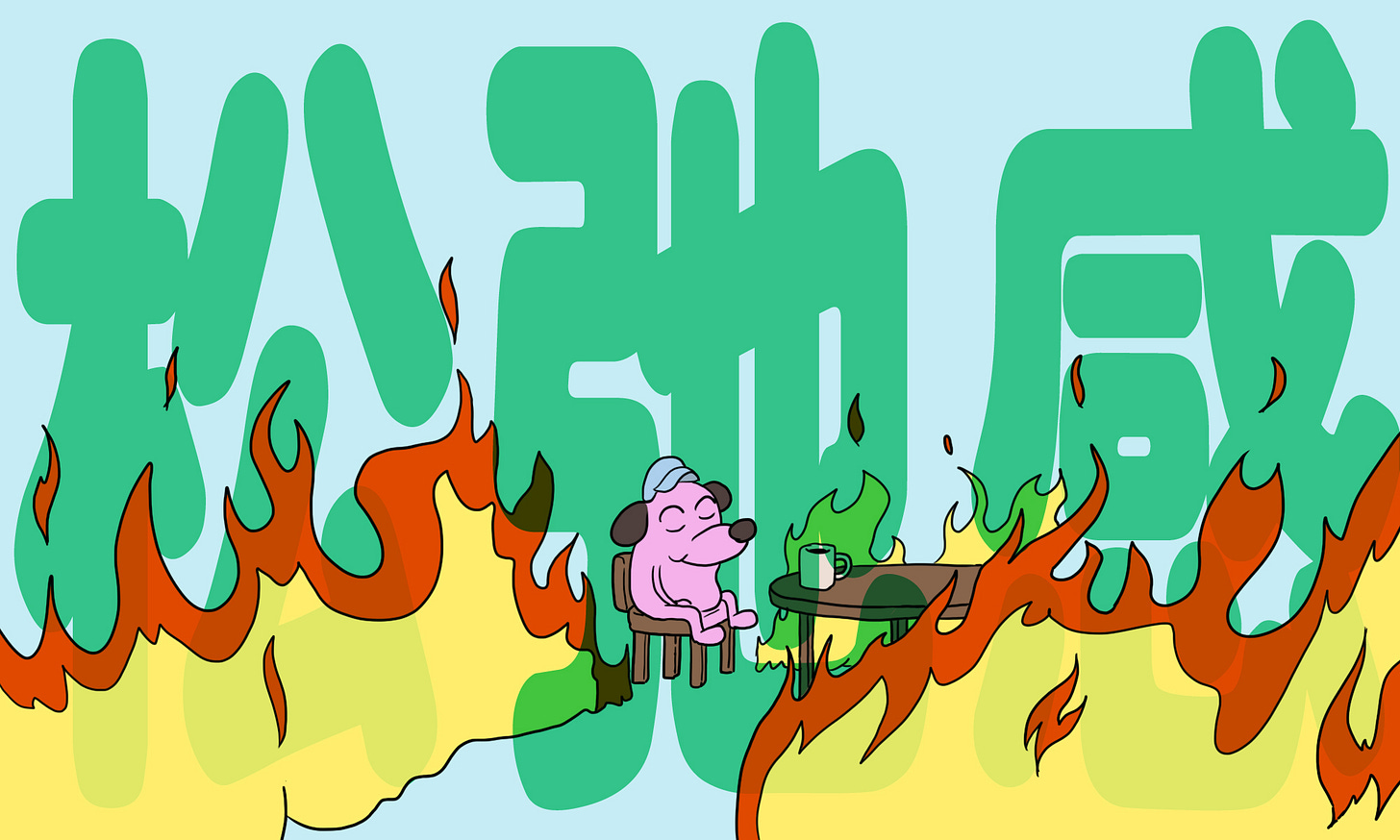Welcome to RealTime Mandarin—a multimedia resource to immerse you in the latest Chinese language trends, inspire you to practice and improve your Mandarin every week, and empower you to communicate with confidence.
Subscribe now to get the next issue straight to your inbox!
In a social media post in August this year, a Weibo user commented on a family who had their travel plans canceled at the last minute at an airport because their son's passport had expired.
The mother decided to cancel her flight and take the son home, leaving the rest of the family to carry on with their holiday plans.
But their luggage was already checked in under her name, and under airport rules, it apparently could not be reassigned to another family member.
So, off the family went on their holiday, two people down and no luggage.
The Weibo user noted:
The family was not upset at all. They simply made a phone call, asked her to take the luggage home and courier it to their destination. They were all so relaxed throughout.
那家人完全完全没有生气,就是打了个电话叫人回来拿行李,然后让他们顺便寄个箱子,全程气氛都非常的松弛。
Since then, the phrase 'relaxed feeling' (松弛感 sōng chí gǎn) has been discussed in the media, becoming a new phrase with which to describe people who are calm in the face of such unexpected change.
The definition of 松弛感 sōng chí gǎn is:
Its meaning is close to that of ‘resilience’ in psychology. Psychological resilience is also translated by Chinese scholars as ‘mental resilience’ (心理韧性) or ‘resilience’ (复原力). Its approximate meaning is a person who can effectively cope and adapt when faced with stressful events, and achieve a state of emotional balance.
松弛感很贴近心理学中的“心理弹性”一词。心理弹性,国内也有学者翻译为“心理韧性”或者“复原力”。大概意思是,一个人在面对压力应激事件时,能够做出有效应对和适应,从而达到情绪上的平衡状态。
The phrase is also defined by what it is not:
The opposite of ‘calm under pressure’ is not ‘anxious’, or ‘pressured’, or ‘exhausted’; it’s the need to control everything.
松弛感的反面,其实不是紧张,不是压力,不是疲惫,而是控制欲
China needs people with 松弛感 sōng chí gǎn, according to media commentary. It’s a quality that many aspire to but few can attain.
But, with life in China being so unpredictable, not least because the ongoing zero-COVID policy, who can blame them, as one writer points out:
At every moment we are in the standby mode. As soon as something happens that's not in the plan, it's easy to totally lose it. We all envy and want to be like those who can remain relaxed.
时刻处在“备战”状态,事情一超出计划就情绪崩溃,一时间,人人羡慕“松弛感”,人人想要“松弛感”。
So that’s what we get stuck into this week!
Favourite Five

1. 紧绷 jǐn bēng
uptight; tense
你活得太紧绷了,你活得太用力了,要慢下来 - You are too uptight, you’re overdoing it. You need to slow down.
2. 控制欲 kòng zhì yù
want to control everything
这种对结果的控制欲,却反过来把我们变成它们的奴隶 - This obsession to control outcomes will in-turn make us slaves to those outcomes.
3. 捉襟见肘 zhuō jīn jiàn zhǒu
pull sleeve see elbows; be hard up, be overwhelmed
为我本就捉襟见肘的脑力和认知资源增加负担 - This added a further burden to my already stressed state of mind.
Note: this idiom is traced back to Zhuangzi. It used to mean poor or impoverished (but in modern Chinese has come to mean lacking or deficiency in finances, time or other aspects of life).
4. 淡定自若 dàn dìng zì ruò
appear calm and composed
家里的其他成员在没有行李的情况下,淡定自若地继续旅行 - The rest of the family, with no luggage, just continued on their travels as if nothing had happened.
Note: Zoe discusses this in the podcast.
5. 吾日三省吾身 wú rì sān xǐng wú shēn
every day I reflect on myself three times
我们的老祖宗早就进行了深刻探索:有“吾日三省吾身”的曾子,也有“逍遥游”的庄子 - Our ancestors had already thought deeply about this: there’s Master Zeng’s ‘every day I reflect on myself three times’, and Zhuangzi’s, Happy Excursion.
Note: this first appeared in the pages of The Analects (论语 lún yǔ); Master Zeng (曾子 Zēngzǐ) - a disciple of Confucius, who later taught the grandson of Confucius, who was in turn the teacher of Mencius (孟子 Mèngzǐ). Zoe explains more about what ‘reflection’ means in this phrase in the podcast.
Consuming the Conversation
Useful words
上膛 shàng táng
load a gun
对绝大多数人来说,他们可以成为上了膛的枪、拉满了的弓、拧紧了的发条 - For most people, they would become uptight like a loaded gun, a drawn bow, or a coiled spring.
备战 bèi zhàn
on stand-by
时刻处在“备战”状态,事情一超出计划就情绪崩溃 - We are always in a state of stand-by mode. As soon as something happens that’s outside of the plan it could lead to emotional breakdown.
卷王 juǎn wáng
Involution King
对于天生的“卷王”而言,顺应本心的“卷”,才是他们的“松弛感” - For the natural ‘Involution Kings’, following their desire to compete is ‘being relaxed’ for them.
More: we first discussed this in 6 November newsletter last year. Involution Kings are those really annoying people who thrive in what is described as China’s ‘involuted’ work culture - dominated by unhealthy, destructive, pointless competition for survival.
扫兴 sǎo xìng
disappointing
这本身是一件十分扫兴的事 - This is really disappointing.
割裂 gē liè
split; at two extremes
很多人其实过得非常“割裂”——我的生活可以凑合,但我的精神必须亢奋 - Lots of people are pulled by two extremes: they make do in their daily lives, but they are hyper-competitive in other areas.
亢奋 kàng fèn - hyper-active, energetic
潦草 láo cǎo
rushed and not careful
下厨做饭嫌麻烦,靠外卖、快餐、速食就能潦草地解决一日三餐 - They can’t be bothered to cook, and rely on take-out and fast food just to get by with their three meals a day.
Three character phrases
超负荷 chāo fù hè
overloaded, overwhelmed
处于注意力严重超负荷的状态里,难以得到真正有效的放松 - It’s hard to fully relax when so badly overloaded.
赶进度 gǎn jìn dù
rushing to make progress














